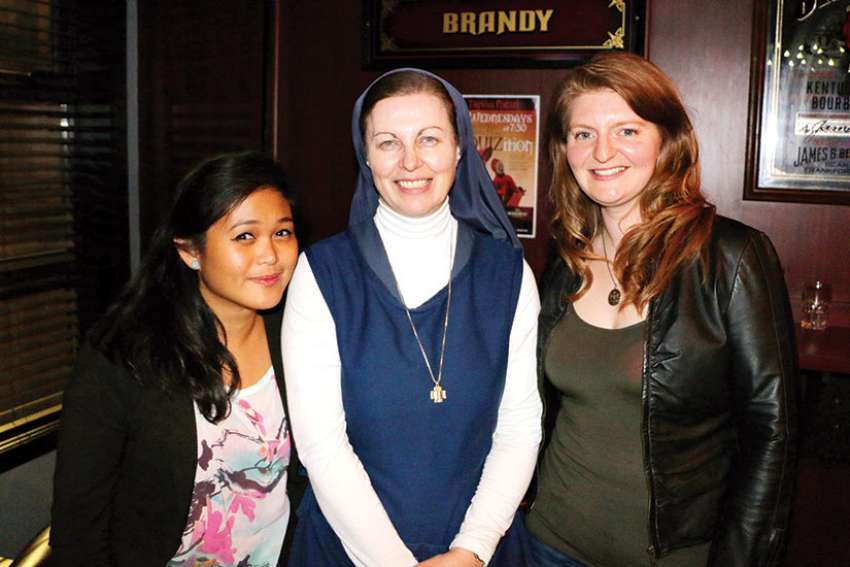It’s not about becoming the lead singer of a Grammy-award-winning heavy metal band. It’s about discussing the harms of pornography addiction and ways to fight it.
“We should openly talk about overcoming porn and how to help people,” Burns told about 45 young adults at Yagger’s Pub in downtown Vancouver on April 21.
Hetfield, as well as Christian artist Audrey Assad and other performers, have spoken publicly about their pornography addictions and their struggles to overcome them.
“A lot of people start very young. You’re not at fault when you’re eight years old and someone shows you something or something pops up,” said Burns.
She estimated 95 per cent of people who use pornography wouldn’t do so if it wasn’t so easy to access on the Internet.
“Today we have the perfect storm: hypersexual media and enabling technologies,” she said, calling smartphones “little porn machines in our pockets.”
She added that pornography is more addictive than crack cocaine because “the body gets addicted to its own chemicals.” It also has serious effects on the brain.
“Porn creates a superhighway in the pleasure centre in your brain that actually physically re-wires your brain, not just chemically, not just in your thought processes. It actually physically re-wires your brain.”
Its addictive nature combined with easy access makes it that much more difficult to fight.
“It’s an addiction, plain and simple,” she said.
“Yes, it’s a sin, and there are many sins that accompany it, but when we’re getting into fields of addiction, it’s not that helpful to talk about sin.”
Pornography does not just affect the user. About 70 per cent of divorce cases cite pornography as one of the main causes, she said.
The solution? The Toronto-based nun suggested talking about pornography addiction, getting help for those who are addicted and promoting a healthy way of understanding sexuality through Theology of the Body.
Theology of the Body was written and first delivered by Pope John Paul II between 1979 and 1984 as a series of lectures on human dignity, the body and relationships.
Theology of the Body is “not about what we can’t have. It’s about what we can have. What the body really is. What it is really for,” Burns said.
“If we don’t know who we are, if we don’t know God loves us, if we don’t know what is truth, beauty and goodness, we’re going to be searching online for our identity.”
Theology of the Body can be used as a good tool to teach children not to seek out pornography and to know what to do if it pops up on their screens.
“God is bigger than our addictions,” she said. “People who are in recovery are heroes. This is really hard stuff.”
(The B.C. Catholic)


